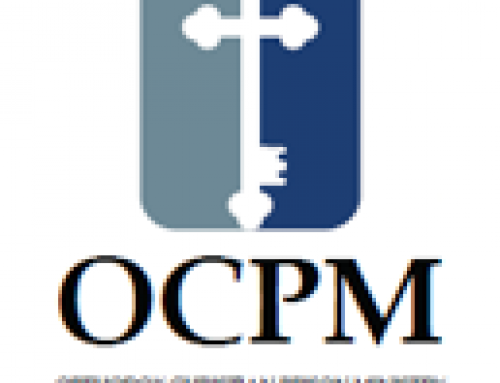This post was originally published on this site
Watch the video of Maggie’s first visit to a monastery and hear what some of the sisters at Holy Transfiguration Orthodox Monastery had to say about the role of time in the Orthodox life and the way that monastics seek to “redeem time.” Then, discuss some of the questions below (if you don’t have time to discuss them all, make sure to finish your discussion with question #9).
- Mother Christofora says that the main difference between monastic life and life in the world is not that people in the world have more things to do than monastics, but that monastics are surrounded by reminders – the local chapel, church bells, iconography and prayers– that draw themselves back to God throughout each day. What are some reminders that you can add to your life to draw you back to God throughout each day?
- Mother Christofora discusses how prayer is something we can do within time that brings us outside of time and closer to God, but she says that we need to not only pray using Orthodox prayer books but also as the Holy Spirit moves us in our own hearts. Have you ever tried to offer a prayer from your heart? Which do you find more difficult: praying from your heart or praying pre-written prayers? Why?
- Sister Paula explains how Mother Christofora is responsible for managing the schedules of all the sisters in the monasteries. What are some benefits and what are some difficulties that may come from someone else managing your time? What do you think the burden of being responsible for the proper management of someone else’s time feels like?
- How do you think the story Mother Christofora told about St. Anthony and the balance between work, prayer, and rest applies to your own life?
- Have you ever thought of sanctifying a meal beyond just saying a prayer before the start of the meal? What new ideas might Mother Christofora and Sister Paula have given you for sanctifying your mealtimes?
- If time is part of the fallen world, how is it a gift?
- Mother Christofora said that a lot of our identity in America is determined by what we do, which often makes us proud and causes us to struggle if a circumstance prevents us from doing what we feel is essential to ourselves. What are the things that you think determine the way you view your own identity? What role does your work play in your identity?
- St. Benedict’s rule, pray 8 hours a day, work 8 hours a day, sleep 8 hours a day, is a way for monastics to maintain a balance between work, rest, and prayer. Is there a similar pattern that you can seek to establish in your own life, and are there any other categories that need to be added to the trivium of prayer, work, and sleep for you as someone living in the world?
- After watching the video and discussing these questions, what do you think about the differences and similarities between monastic life and life in the world? What aspects of the monastic tradition do you feel are the best sources of inspiration for striving to live a sanctified life in the world?
Conclude your discussion with the prayer shared by sister Paula , the prayer of the hours:
At all times and at every hour you are worshiped and glorified in heaven and on earth, Christ our God, long in patience, great in mercy and compassion, who loves the righteous and show mercy to all sinners. You call all to salvation through the promise of good things to come. Lord, receive our prayers at the present time. Direct our lives according to your commandments. Sanctify our souls. Purify our bodies. Set our minds aright. Cleanse our thoughts and deliver us from all sorrow, evil, and distress. Surround us with your holy angels so that, guarded and guided by their host, we may arrive at the unity of the faith and the understanding of your ineffable glory. For you are blessed unto the ages of ages. Amen.



